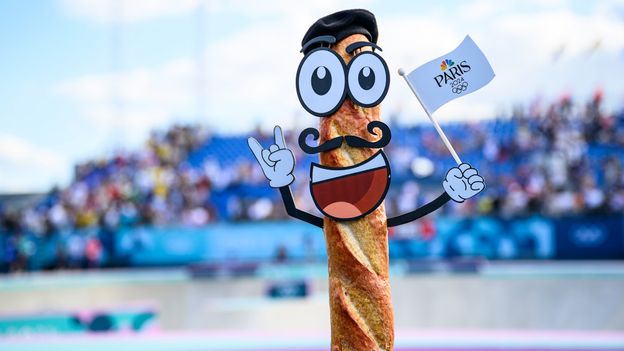“We got some feedback from the meat lobby, asking, ‘Why are you doing this? Can you explain?’ But when you remind them that we only purchase high-quality meat, then they accept the idea.”
Vive la vegetarianism
Ahead of this year’s games, the Paris hosts touted a new set of culinary priorities in an ambitious new Food Vision. Together with a goal of doubling the amount of plant-based food served at any other Olympics, Paris 2024 also promised to source 80% of products from within France, and 25% from within 250km (155 miles) of the venues. Thirty percent would be certified organic.
Most venues for spectators have served plant-based options as two-thirds of their offerings, says Wurz. In addition, for the first time in modern Olympic history, one stadium – the urban park at Place de la Concorde, hosting the skateboarding, breakdancing and BMX events –is entirely meat-free. The football stadiums, in contrast, have only been mandated to offer 40% plant-based food. Wurz says this is because they’re largely based outside of Paris and have long-standing catering arrangements for matches.
Providing food for the Games has not been without challenges. At the event’s start, athletes complained about the shortages of meat and eggs and the rationing of breakfast foods within the Olympic village dining halls. In its second week, British swimmer Adam Peaty also claimed worms had been found in food and that the general quality and quantity on offer was inadequate.
In an interview prior to the games, however, Wurz stressed that the 60% plant-based quota of food offerings was only applicable to venues serving spectators, and not to athletes inside the Olympic village. And a few days after the first reports of shortages, Valentine Serres, a spokeswoman for Sodexo Live!, the official catering partner in the Olympic village, told BBC Future Planet that all items were now “available in adequate quantities”.


Dining and Cooking